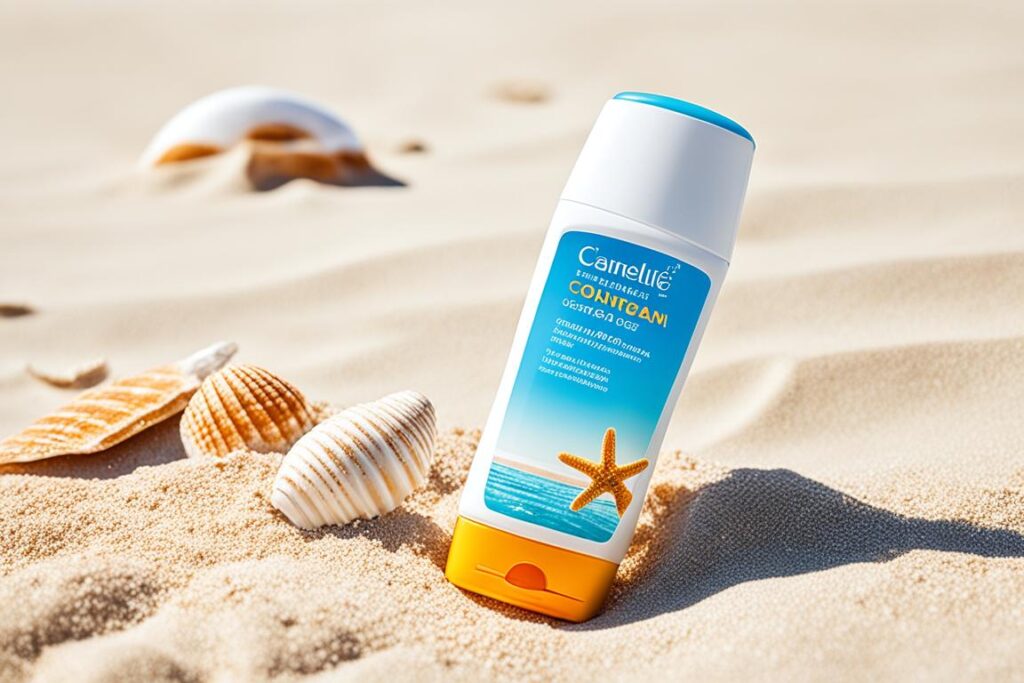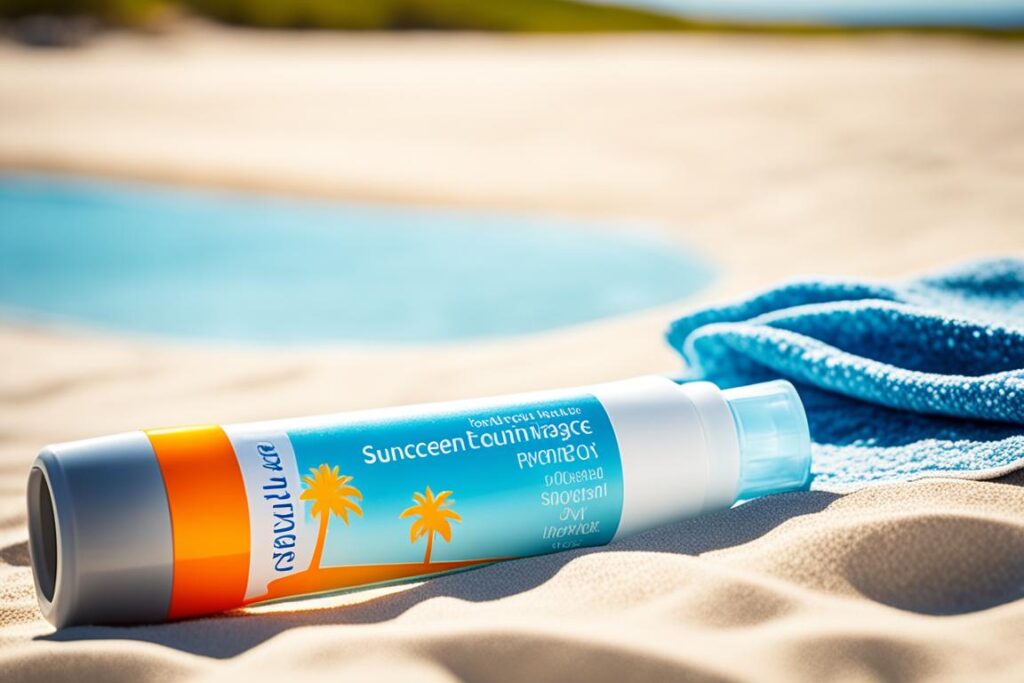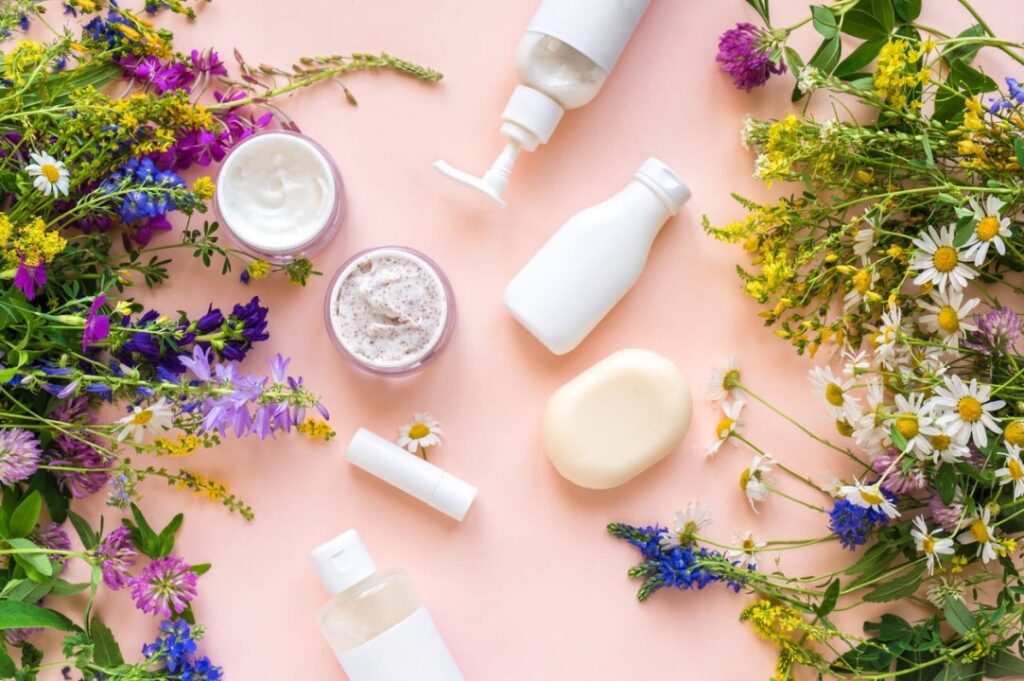Figuring out what works in anti-aging cosmetics can be tough. Many products promise a lot but deliver little. We aim to help you cut through the noise. We’ll show you what really makes your skin look younger.
Skin experts say some ingredients and habits help your skin stay young. First off, protecting your skin from the sun is key. Sunlight causes a lot of skin issues, like wrinkles and dark spots.
Use sunscreen that blocks both UVA and UVB rays and has an SPF of 30 or higher. Put it on generously. Remember to reapply if you’re outside for a while. Keeping sun off your skin is a major youth-preserving move.
Don’t only rely on sunscreen, though. Products with retinoids are also great for fighting aging signs. These include skincare with ingredients like retinol. They decrease wrinkles and build collagen, making your skin look and feel better.
Now, let’s look at what else helps in anti-aging. Vitamin C is fantastic for your skin. It boosts collagen, lightens dark spots, and fixes sun damage. Acids such as glycolic and hyaluronic ones help with wrinkles.
Peptides are also important. They improve collagen production, making your skin firmer. Don’t forget about moisturizers. They help your skin keep its moisture and hide wrinkles, especially those with squalane.
Key Takeaways:
- Real anti-aging creams have key ingredients that truly work.
- Retinoids, like retinol, are great for reducing wrinkles and boosting collagen.
- Vitamin C, different acids, peptides, and hyaluronic acid help your skin stay young.
- Using sunscreen is vital to avoid early skin aging and damage.
- Moisturizing is key for soft, young-looking skin and reducing wrinkly signs.
The Importance of Sunscreen and Retinoids
Sun protection is key in anti-aging skincare. Without it, skin ages faster. UV rays from the sun break down collagen, causing wrinkles.
A broad-spectrum sunscreen should be used daily, with SPF 30 or higher. Regular use and reapplication every 1 to 2 hours is important, especially on exposed skin.

After sun protection, include retinoids in your routine. These include retinol and boost collagen while reducing wrinkles. They also make your skin’s texture better and clean your pores.
Using both sunscreen and retinoids can stop early aging and lessen aging signs.
Get Sunscreen and Retinoids from Target and Walmart
Other Beneficial Ingredients and Skincare Practices for Anti-Aging
Vitamin C is an essential ingredient for anti-aging. It’s a strong antioxidant that boosts collagen, brightens skin, and heals sun damage. Using skincare products with vitamin C will enhance your skin’s health and look.
Get skincare products with vitamin C from Derma E
Acids are crucial for fighting the signs of aging. Glycolic acid and hyaluronic acid can reduce lines, wrinkles, and dark spots. They scrub the skin gently and moisturize deeply, making your skin appear smoother and younger.
Buy Glycolic acid SkinCare from Rodial and hyaluronic acid SkinCare from Image Skincare
Peptides are important too. They’re amino acid chains that increase collagen, minimizing fine lines. Including peptides in your daily skincare can keep your face young-looking.
Buy Peptides skincare products from skinbetter
Nourishing your skin with moisturizers is vital, no matter your age. They make wrinkles less obvious and keep skin full of moisture. Choose moisturizers with squalane, a great hydrator that soothes and softens the skin.
Buy moisturizers from Sephora
Using these ingredients in your skincare helps fight aging effectively. Vitamins C, acids, peptides, and moisturizers can keep your skin vibrant and fresh. Just remember to keep up with it regularly for the best results.



